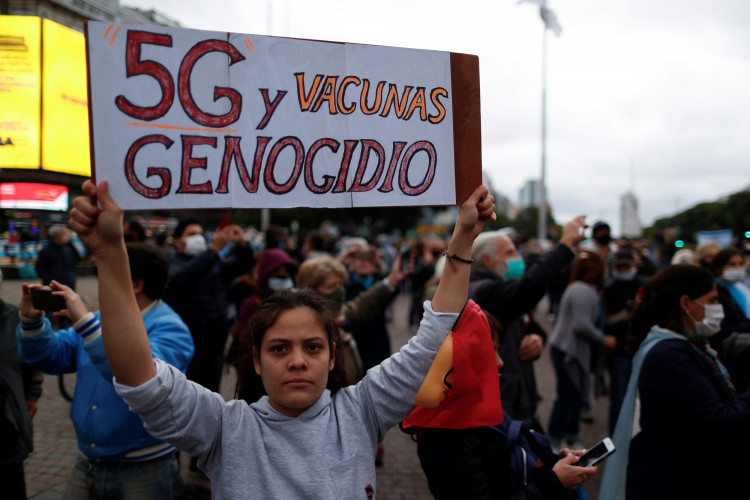COVID-19 cases continue to see a spike in the many regions of the globe. Along with this surge are social media posts and news articles about the coronavirus, which unfortunately are not all true. In these challenging times, misinformation is a dangerous thing.
So, here is a list of the most pervasive arguments -- all of them untrue -- about the novel coronavirus and the disease it causes. Share these with your loved ones!
Myth: 5G is a coronavirus spreader
According to the World Health Organization, any type of virus, including the one that's causing COVID-19 -- SARS-CoV-2 -- cannot be transmitted through mobile networks or radio waves. The new coronavirus is being passed from person to person through respiratory droplets, which are expelled when an infected individual speaks, sneezes, or coughs; or when a person touches a contaminated surface. It's important to note that countries that do not have 5G networks have cases of COVID-19.
Myth: You can pick up the virus in packages from China
Stop thinking twice about receiving packages from China -- you cannot pick up the virus through this way, according to the WHO. Preview research has found that coronaviruses die out on these objects simply because they need specific environmental conditions to thrive.
For the coronavirus to remain alive, its environment must have the ideal temperature, humidity, and should not be exposed to UV. Shipping packages don't have this perfect combo, according to Dr. Amesh A. Adalja, Senior Scholar, Johns Hopkins Center for Health Security, in an interview with Tom's Hardware.
Myth: The sun can ward off COVID-19
Living in areas with warm climates or simply exposing yourself to the sun will not exclude you from getting the virus. Regardless of how high the temperature is, you can still catch COVID-19. Countries with very hot weather conditions have cases, such as the Philippines and India. In the U.S., Arizona alone, which is a state too hot, has over 128,000 cases.
Myth: Wearing masks can cause CO2 intoxication
Masks can be extremely uncomfortable when worn for long periods, but no, it won't cause carbon dioxide poisoning or oxygen deficiency. The same is true for makeshift cloth masks and N95 masks, according to Healthline.
"The 'dose' of CO2 we might rebreathe while masking is quickly and easily eliminated by both the respiratory and metabolic systems in the body," Darrell Spurlock Jr., the director of the Leadership Center for Nursing Education Research at Widener University in Pennsylvania, told Healthline.
A tip from the WHO: make sure your mask is snug fit, but not to the point of restricting your breathing.






